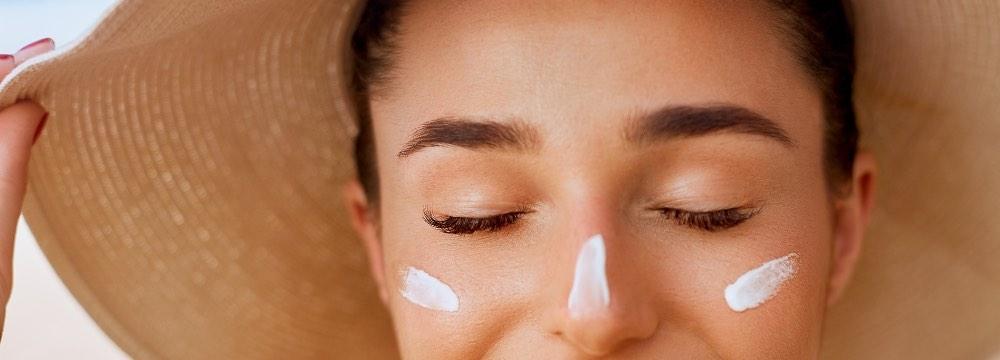Staying Out of the Sun Before and After Laser Skin Treatments

It’s wintertime, and for many, it’s the ideal time to start a more intense course of skin treatments. We spend less time outdoors, with less daylight and the temptations of summer recreation are on pause. The sun seems far weaker than it was just a few months ago because the rays aren’t as strong, but that doesn’t mean it isn’t as damaging. If you’re scheduled for laser skin care, like resurfacing or rejuvenation therapy, you may feel confident that you can expose your skin to winter sunlight without worrying about the results of upcoming treatment.
Instead, you should know that avoiding direct sun exposure is the only way to ensure the best cosmetic results from your laser therapy. Even exposure to a weakened sun can change the pigmentation of your skin. As such, we insist you avoid direct sunlight for at least two weeks before your procedure. If you must be in the sun, we recommend using a high-quality 30 or 40-SPF sunscreen and wearing a wide-brimmed hat. Also, reapply sunscreen regularly to ensure it does not lose effectiveness over time. In this instance, sunscreens that act as a barrier to the sun’s rays (physical sunscreen) may be preferable to chemical sunscreens that absorb UV.
What About After-Laser Therapy?
The same is true for post-therapy exposure. To understand how your skin will react to the sun, it’s essential to know what laser skin resurfacing does. During treatment, we use a laser to damage the upper layers of skin (epidermis), exposing a lower layer known as the dermis. Eventually, the treated skin develops a new layer of skin, giving you that glowing, younger look. However, this brand-new skin has never been exposed to the elements and is very sensitive to the sun. Exposure to direct sunlight up to a few weeks after a laser resurfacing procedure increases your risk of photodamage, which can cause irregular pigmentation or even skin cancer. Some protected sun exposure is acceptable within four weeks after your procedure, but only after consulting with Dr. Boger. Your skin will have fully acclimated within 6-to-8 weeks.
Will My Skin Be Permanently Damaged if I Expose It to the Sun?
The short answer is probably not. However, you increase the risk of scarring, patchiness, unsightly results, and a marginal risk for skin cancer if you regularly expose your unprotected skin to the sun before or after laser resurfacing therapy. You’re also not taking full advantage of the financial investment you’re making in your skin. If you expose your skin to the sun before or after treatment, it is essential to tell Dr. Boger, so we can proceed appropriately. If you are exposed to the sun more than just in passing within the 14 days before your procedure, and your skin color has changed, we may opt to delay your visit. If your sun exposure is post-procedure, we will let your skin settle and reevaluate at the first available opportunity.
General Information on Sun Exposure
When discussing sun exposure, skin cancer is the first thing that pops into people’s minds. Skin cancer is a possible side effect of a lifetime of excessive sun exposure, but many of us forget about the other effects the sun can have on our skin. While your natural tan will turn heads, it is very concerning for us as medical providers as we know what is happening under the surface. When we are young, our skin can hide the damage that UV rays cause. However, as we age, lines, wrinkles, skin laxity, and sunspots from a life of exposure start to appear. These can be treatable with various rejuvenation options (including lasers) but can never be fully reversed once the damage is done. This represents damage to the skin on a deep, cellular level. Sun damage is also insidious because we can’t readily see what’s going on under the deeper layers of the skin without sensitive, advanced equipment. Exposure to the sun can increase the risk of premature:
- Wrinkling
- Hyperpigmentation
- Loss of elasticity
- Redness and spider veins
- A patchy look to the skin
- Rough or uneven skin
We know that staying out of the sun can be challenging, especially in Central Florida. However, it is essential to remember the consequences of not taking care of your skin and not using a broad-spectrum sunscreen that protects you from both kinds of UV radiation, UVA and UVB. Also, remember the wide-brimmed hat for maximum face shielding and be mindful when you exercise outdoors. All these added measures to protect the skin before and after treatments add to healthier, brighter skin.
We encourage you to schedule a free consultation here at Revive with Dr. Boger to understand how laser skin therapy can help you keep and enhance that glow throughout the winter months. We look forward to seeing you in the office soon!